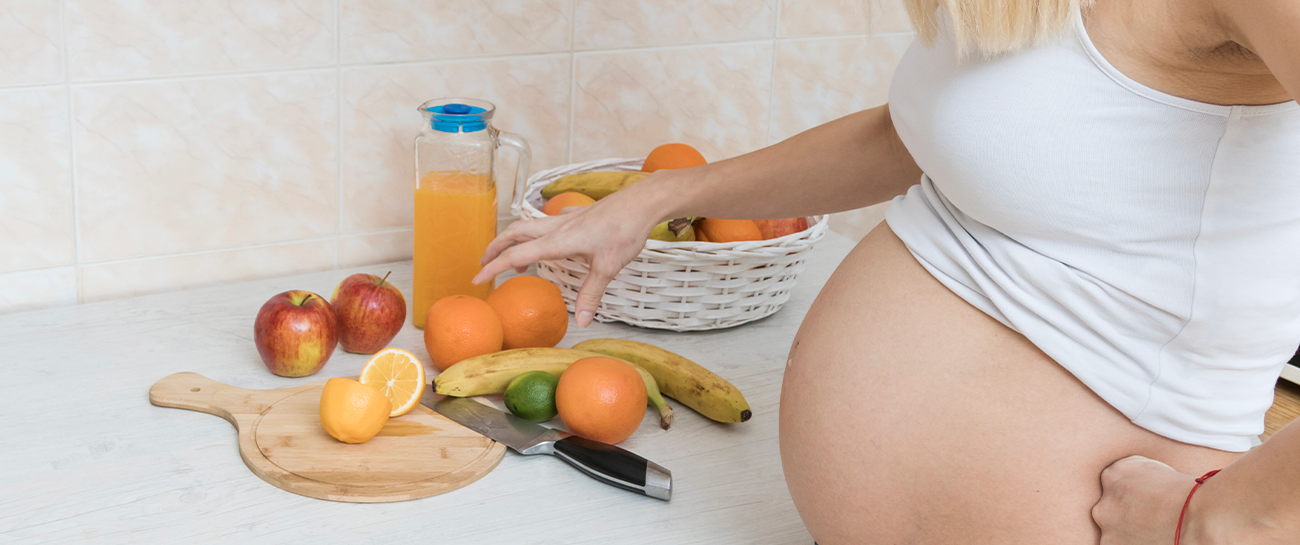Maslak Surgical Medical Center

Pregnancy is one of the most important periods in a woman’s life and proper nutrition is of great importance for a healthy pregnancy. It is vital for pregnant women to get the nutrients their bodies need , both for protecting their own health and for the healthy development of the baby.
There are some issues that need to be considered for proper nutrition during pregnancy. First of all, it is important for pregnant women to have an adequate and balanced diet. The main food groups that should be consumed on a daily basis include protein, carbohydrates, fat, vitamins and minerals. A balanced intake of these food groups helps to meet the energy and nutrients the body needs during pregnancy.
In addition, pregnant women especially need important vitamins and minerals such as folic acid, iron, calcium and omega-3. These nutrients are important for the healthy development of the baby and their deficiency can lead to various health problems. Therefore, it is important to take supplements or consume foods containing these nutrients as recommended by your doctor during pregnancy.
Another issue to be considered during pregnancy is water consumption. Drinking enough water is important for maintaining fluid balance in the body and helping the digestive system work properly . There is also a risk of digestive issues such as constipation during pregnancy, so consuming fibrous foods and drinking enough water can support the proper functioning of the digestive system.
Proper nutrition during pregnancy is important for the healthy development of the baby and helps the expectant mother to maintain her own health. Therefore, it is important for pregnant women to stay in touch with their doctors and follow expert advice on proper nutrition.
Adequate Nutritional Intake
Providing adequate nutritional intake during pregnancy is of great importance for the health of the expectant mother and her baby. During this period, the expectant mother’s body needs more nutrients and energy to meet the increased needs.
There are some important points that pregnant women should pay attention to in their nutrition. First, it is important to consume protein-rich foods. Protein sources such as meat, fish, eggs, milk and dairy products are essential for the healthy growth of the baby. It is also important to consume foods rich in iron. Iron sources such as red meat, dried fruits, and spinach increase the blood volume of the expectant mother and reduce the risk of anemia.
However, it is also important to avoid certain foods during pregnancy. In particular, foods that contain potentially harmful bacteria, such as raw or undercooked meat, seafood and eggs, should be avoided. In addition, substances such as caffeine, alcohol and cigarettes should be strictly avoided.
It is important to eat a balanced diet from various food groups to ensure adequate nutritional intake during pregnancy. It is necessary to include foods such as fruits, vegetables, whole grains, milk and dairy products in the daily diet. It is also important to take the supplements the doctor recommends. Remember, a healthy diet is very important for maintaining the health of mother and baby.
Special Needs During Pregnancy
During pregnancy, some special needs arise in the body. During this period, it is known that pregnant women need certain vitamins and minerals to have a healthy pregnancy.
First, folic acid is an important vitamin during pregnancy. Folic acid aids in the development of the baby’s nervous system and helps prevent birth defects. Pregnant women are recommended to increase their daily intake of folic acid. However, it is difficult to meet this need from completely natural foods. That’s why doctors often prescribe folic acid supplements.
Second, iron is an essential mineral during pregnancy. Iron aids in the production of hemoglobin and increases the oxygen carrying capacity of the blood. Iron deficiency anemia is quite common in pregnant women. Therefore, it is recommended that pregnant women take iron supplements. It is also important for them to consume foods rich in iron. Red meat, dried fruits, legumes and green leafy vegetables are rich sources of iron.
In addition to these, calcium and vitamin D are also important during pregnancy. Calcium is essential for the baby’s bone and teeth development. Milk and dairy products are rich sources of calcium. Vitamin D aids in calcium absorption. Sunlight triggers vitamin D synthesis, so sunbathing is important. In addition, foods such as fish and eggs are also rich in vitamin D.